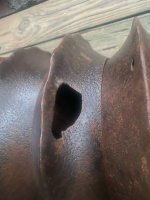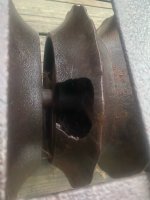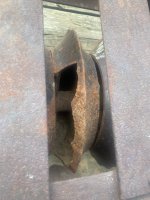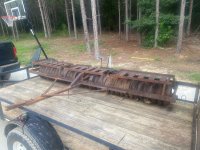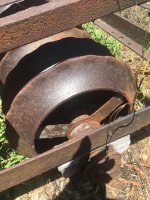bnew17
Bronze Member
I recently bought this 10ft cultipacker. I got it for $600, made a good little drive to pick it up only to find out 4 of the 32 wheels are damaged. There is 1 other wheel that is damaged but it is very minor. I am debating on whether to take these wheels off completely, or try and find somebody that can patch/repair these wheels. I would really prefer to keep it 10ft and have them repaired. I am also going to be adding some rear tires on the back of the packer to transport,,,especially after seeing the damaged wheels. There's no way I want to transport it like it is. My question is how feasible is it to get these wheels repaired? And has anyone repaired cast iron before? I was hoping some 1/8" or possible 1/4" flat bar or something cut out of plate could be welded on there. Would certainly not need to be perfect, but something to cover up the hole and keep from having further damage. It has wooden bearings, which I will replace with pillowblock bearings.
